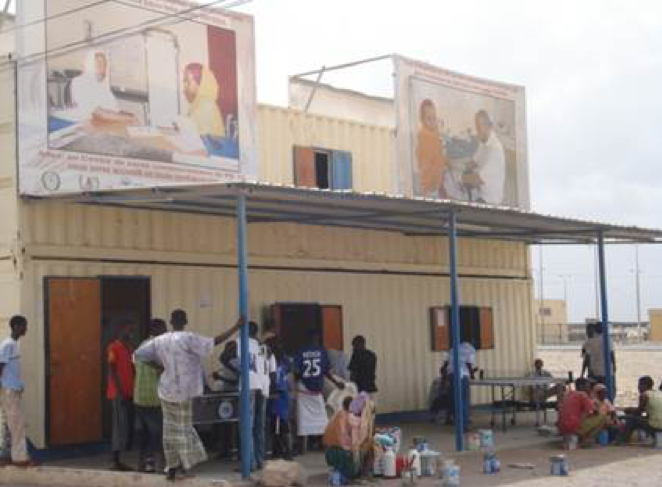Speeches Shim

HIV/AIDS
USAID/Djibouti’s health programming continues to focus on HIV/AIDS. This is a priority area that is aligned with the Agency’s goal of Ending Preventable Child and Maternal Deaths (EPCMD) by reducing HIV/AIDS mortality and morbidity among women and preventing maternal- to-child transmission of HIV/AIDS. The current activity, LINKAGES, also supports the following priorities of the Government of Djibouti’s (GoDJ’s) national HIV/AIDS strategy for: 1) setting up and decentralizing prevention programs; 2) reducing the determinants of the precarious nature of PLHIV and their families, and 3) strengthening the evaluation of the national response, coordination, management and monitoring. The activity will among other things, provide Key Populations (sex workers and males having sex with males) and Priority Populations (clients of sex workers, truck drivers, and young vulnerable women) with a comprehensive package of best-practice interventions. The current activity also builds upon the lessons learned from previous HIV/AIDS activities (ROADS I and ROADS II) to reduce and prevent HIV prevalence along the Djibouti-Ethiopia corridor.
Through LINKAGES USAID is focusing on improved prevention and testing coverage. Emphasis will be placed on continuing the delivery of services to Key Populations (KPs) and strengthening the capacity of community-based partners through technical assistance (TA) and mentoring. Interventions are aimed at accelerating the ability of the GoDj, advocates of Key Populations, and private sector providers to collaboratively plan, deliver and optimize services that reduce HIV transmission among KPs and extend life for those who are HIV-positive. Support for the use of evidence based approaches to plan and implement comprehensive and sustainable services that reduce HIV transmission among key populations and extend the lives of those already living with HIV is a key component of the projects strategic approach.
POLIO
Djibouti has been polio virus free since 1999, but because it is surrounded by countries with continuing outbreaks, USAID supports the government’s polio surveillance system. Targeted Ministry of Health staff has received training in polio awareness, and nationwide, all children have received the polio vaccine.
Routine immunization coverage remains a concern in Djibouti. The severe drought in the sub-region has increased the magnitude of already existing significant movement of nomads, mainly in areas bordering Ethiopia, Somalia and Eritrea. Djibouti is at high risk for potential wild poliovirus importation and a subsequent outbreak, due to low routine immunization coverage, a weak Acute Flaccid Paralysis (AFP) surveillance infrastructure, and large mobile and migrant populations.
USAID supports supplemental immunization activities to reach children missed through the weak routine immunization which is generating an important cohort of unprotected children each year. USAID also supports surveillance interventions for integrated Vaccine Preventive Diseases including active AFP surveillance site visits, investigation of cases, and transportation of specimens.
Health System Strengthening (HSS)
Strengthening Djibouti’s health system is a top priority for the GoDJ and USAID. The main objective is to address weaknesses so that critical health services can function properly on a consistent and sustainable basis in an integrated health system and produce better health outcomes. GHP-USAID funding will continue to support the GoDJ in the fight against HIV/AIDS. USAID will work through community-based organizations to implement effective evidence-based practices to change behaviors and support health facilities in order to increase service uptake.


Comment
Make a general inquiry or suggest an improvement.